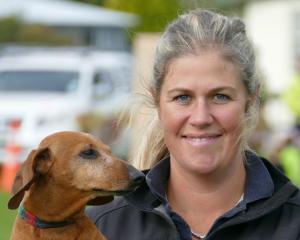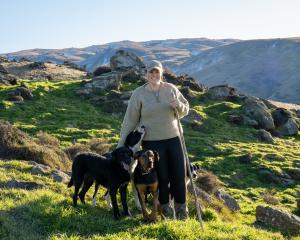
Being a recipient means weeks of international travel to find the best agricultural practice worldwide.
He is excited and honoured to have made the cut in a district ''awash with Nuffield scholars'', but his excitement comes with its own set of nerves.
Especially as it means living up to the standard set by past Nuffield scholars.
''I just want to do my best,'' he says of the opportunity.
It has been 17 years since he finished formal study, gaining a bachelor of commerce (agriculture) degree from Lincoln University.
He also has responsibilities now, including being dad to three young children aged 8, 5 and 3.
So for the 41-year-old, the decision to apply was not taken lightly.
But with the support of wife Melanie, parents Graham and Eleanor, brother Stuart and sister-in-law Jessica, the timing was right for the whole family.
And Hamish is set to embark on the study of a lifetime.
It will involve at least 16 weeks of international travel: six weeks of a compulsory travel agenda, and at least 10 weeks for his own independent study.
''It's quite a thing, quite a long time to be away from home.''
Hamish originally planned to study Europe's new synthetic agrichemical regulations in the control of weeds, pests and disease, and the implications for New Zealand, especially as countries in Europe aimed to reduce and, ultimately, ban, products containing glyphosate. But he has realised the scope is too broad.
By the time he attends his next Nuffield briefing in December, his study topic will have more focus.
He has no idea what his study will find, but knows the court of public opinion could impact on New Zealand farming in the future.
And if glyphosate is removed from the market, Hamish wants to know about alternative options.
''You have to follow the science ... if we can't change public perception, it might go.''
Hamish is a fifth-generation, intensive arable farmer.
Along with his parents and brother, he farms 500ha of family land with arable crops such as grass seed, clover, wheat, barley, oats, peas and radish seed.
They specialise in small seeds for sowing.
They also graze up to 4000 lambs.
So right now, Hamish wants to know what his international farming peers are using as alternative practices.
The idea to apply for the scholarship has bubbled away in the recesses of Hamish's mind for the past 18 years.
It started when he was studying at Lincoln University and spoke to a past Nuffield scholar and learned of the process and its benefits.
As a seed grower keen to find out about alternative practices to synthetic agrichemicals, Hamish plans to visit other seed-growing countries such as the United States, Canada, France, Germany, Denmark and the United Kingdom.
But he is going to seek advice from people at the Foundation for Arable Research and local seed-growing companies on the best destinations.
Once his tenure starts in March 2019, Hamish has one year to complete his study within the $40,000 scholarship budget. He will report his findings at a conference in 2021.
He is one of five 2019 Nuffield New Zealand scholars.
The other recipients are Ben Hancock (Wellington), Cameron Henderson (Oxford, North Canterbury), Corrigan Sowman (Golden Bay) and Hamish Murray (Marlborough).















